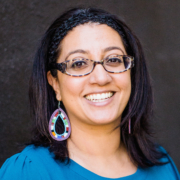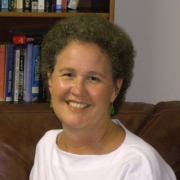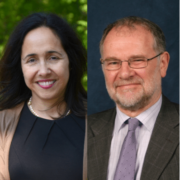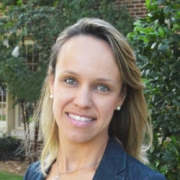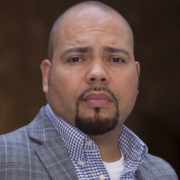Susanne E. Jalbert
Focus on Afghanistan #2
In October, we aired our first focus on Afghanistan, looking at the thousands of Afghans stranded after the UK withdrew from the country. Today, we look at the situation from the perspective of the United States. With me is Susanne Jalbert, who served as the Chief of Party on the USAID Promote: Women in Government Project. She details the stories and struggles of trying to evacuate the thousands of people connected to this USAID project.
Susanne Jalbert currently serves as Senior Advisor for the Syria, Iraq, Yemen, and Afghanistan Regional Business Unit at Chemonics, which implements many USAID-funded projects.
You can donate here to support the evacuation effort.
Citation: Jalbert, Susanne interview with Will Brehm, FreshEd, 266, podcast audio, December 13, 2021. https://freshedpodcast.com/jalbert
Will Brehm 1:31
Susanne Jalbert, welcome to FreshEd.
Susanne Jalbert 1:38
Thank you, Will. It’s a pleasure to be with you.
Will Brehm 1:39
So, can you tell me a little bit about when the USAID Promote Women in Government Program was started in Afghanistan?
Susanne Jalbert 1:49
So, the USAID Promote Women in Government project actually kicked off in April of 2015. It’s implemented by Chemonics International but there’s an important little caveat to recognize here. Chemonics International has implemented for USAID for over 20 years on 26 projects. And even today, we have three live projects and several probably not quite 100 employees still on the ground there.
Will Brehm 2:19
-in Kabul, specifically?
Susanne Jalbert 2:20
Yes, we still have people. Not just in Kabul because we implement nationally. So, we have people that we’re very concerned about, and then I’ll get into my concern for my team as we talk.
Will Brehm 2:34
Okay, so just so listeners are clear that USAID is the bilateral aid that’s being given from the US government to, in this case, the previous Afghan government. But the project that was being implemented was being done so by a company called Chemonics?
Susanne Jalbert 2:51
That’s correct. So, the United States Agency for International Development doesn’t actually produce their own projects. They lay out a scope of work that they want to achieve that’s in alignment with our government and the government that we’re assisting. So, in this case, USAID funded -and this is important to note- the largest women’s empowerment project at around $310 million ever! Ever in the world. It’s the largest amount of money we’ve ever put toward women’s rights, women’s economic empowerment, women’s role in civil society. It was simply phenomenal. And it was divided into four task orders for economy, civil society, leadership, and then my project- women in government. So, it was huge. If you look at just my staff alone, my staff numbers total 204. We enrolled 3,901 young women to move them into working for government officials and government agencies. So, it’s an enormous number.
Will Brehm 3:58
So, it’s a huge project. Multiple sorts of schemes or avenues that this project is being implemented. You are in charge of the Promoting Women in Government sort of component of this larger project. And you said over 3,000 women. So, what exactly did this project do? How did it actually promote women in government?
Susanne Jalbert 4:21
That’s a great question. And in fact, we had over 21 indicators for that purpose that we were trying to achieve. But I’ll break it down into just three. There are three main overarching goals that we endeavor to achieve through the project. First, facilitate actual entry into decision-making roles in the government. And then second, we do want the government to welcome them, so encourage a hospitable environment for female staff in the government. And then third was to, in general society to the government, increase the local stake-hold for the women in civil service. So, women in general were welcomed into the economic sphere to begin with, and now we’re pushing them into the government, which is a male domain. So, you can see how many cross sectoral kinds of things we had to look at to get full engagement.
Will Brehm 5:15
Over five years before the fall of the Afghan government in August of this year, what impact did it have? By the end of 2020 or so, how many women were actually working in government?
Susanne Jalbert 5:29
We were riding on a high by the end of the five years. So, I’ll give you just a few of the final outcomes. So, I mentioned in the beginning we actually enrolled 3,901 young women into a full one-year program. We graduated from that program 3,059. We employed 1,778. We measured from the beginning to the end an 8% stakeholder increase in attitudinal shift. Now when you’re looking at a traditional, very hyper cultural society, that’s an enormous leap. And then we were able to support 15 legal policies that helped position women in the workplace, reduced harassment, looked at infrastructure, looked at their safety issues, and we even had some cabinet buy-in to those policies. So, then to go from riding this high in the middle of 2020 to the low that we hit on August 15 has been devastating. I mean, not just for me, but for the men and women that worked on this program.
Will Brehm 6:36
Before we get to August 15, obviously, there were many reports in the New York Times and The Washington Post about the sort of slow progression of the Taliban covering most of the territory of Afghanistan. And it wasn’t until August when Kabul fell. At what point did your program start talking about the Taliban’s advance across the country and what it might mean for the program and project that you were working on?
Susanne Jalbert 7:04
I’ll frame that just a little bit differently. One of the things that we need to remember about Afghanistan: we continually talked about it being post-conflict, it was never post-conflict. There was conflict across Afghanistan, all the time. All 20 years. And we had to be enormously careful with our staff and with our interns to keep them safe when we were rolling out programs. And we had a very special unique security team within Chemonics that helped us do that. So, I don’t think that we can look at it as when did X happen? Taliban was always there. Taliban was always working against the US government and against the Afghan government to retake control. At no point did we look at one another, and say today or tomorrow. Instead, we looked at it from a control aspect. There were enough troops on the ground, ISAF was on the ground with all the multinational troops. It wasn’t just the United States, and Afghans were training up their own troops. So, even today, when I speak with my staff, they’re in utter shock that it could have collapsed in the way that it did. There was not an expectation that today we’ll be organizing a program and tomorrow we’ll be running for our lives. That’s a hard reality to absorb.
Will Brehm 8:28
So, where were you when you found out that there was a collapse in the government?
Susanne Jalbert 8:33
I was actually home in Colorado. So, the project officially closed in July 2020. And we continued to ride the adrenaline rush. We did great. We’re so proud of our achievements. And then through June and July, you could see Taliban starting in the south, moving over to the west, coming around to the north, and you just knew that they were going to drop down into Kabul. But even as late as July and August, my team is still saying Kabul will hold. Afghan troops will hold. We’re trained. We understand democracy. They never, never believed that there would be such an utter rapid collapse that we saw.
Will Brehm 9:15
That’s quite surprising, isn’t it? I mean, like, why was there such a dissonance?
Susanne Jalbert 9:19
I think the disconnect is that for 20 years, we’ve been teaching them about rights, human rights, women’s rights, and the right to vote, democracy and what it looks like. And the people that worked for all the aid projects, and it doesn’t matter what country you know, if it was a European country, or if it was the US, the Aussies were there, too. They saw hope for a different kind of life that was different from the 90’s Taliban and that hope is imbued in the youth and in women. So, I don’t think they could let themselves believe that there would be a return to the 90’s especially if they’d already lived under it.
Will Brehm 9:56
And then of course, the summer came, and it happened very rapidly and rather chaotically. So, explain what happened to both the staff members, you had a large staff in Kabul working on this project, maybe outside of Kabul as well, as well as these 1,700 women that were now employed by the civil service. What happened to these people during those sort of months of evacuation, or weeks, I should say it all happened rather quickly?
Susanne Jalbert 10:28
It did. It really happened within a window of 15 days. So, we saw Kabul overtaken on August 15. But we knew that the US troops would be withdrawn by August 31. So, we didn’t, here in the US, think for a minute that there would be an extension, or an agreement between the US and the Taliban, or the quasi-Afghan government to allow a longer period of time. I don’t think anybody could have anticipated the crazed chaos. Where the airport is located, on the other side of the main wall, the brick wall, the concrete wall was my compound. So, when we saw the bombing of Abbey Gate -that was the main entry and exit point from my compound to access the airport- so of course, I was glued to the media. I mean, it was like an illness. I just -I couldn’t turn it off. And then to see that our compound was totally overtaken, I realized, I don’t have a home. And then I stepped back and said, “Okay, wait a minute, it’s not happening to me. I’m sitting here in Colorado, quite safe”. But thinking of all of my staff trying to push through those terrible crowds trying to get to the airport. So, I have the story of one of my staff members, and I’ll use the name “Sema” because she preferred not to be recognized. Sema pushed through those crowds with her two sisters. And she couldn’t get through Taliban, she couldn’t get through people that were protecting the airport itself. But she saw a US military man, and she handed him her passport, and her sister’s passport, and opened it to the page where it showed that she was eligible for the US Special Immigration Visa. He closed them, put them in his pockets and gave them his hand to help guide them safely into the airport where they sat for two days with no food, no water, no access to facilities because it’s pure chaos by this time. But they sat, they waited, they got boarding passes, they were able to fly out through Bahrain, and then into Washington, DC. And then they were put in a camp here in the United States for two months. They’ve only just now reached Metro DC where they’ll begin to settle. She was so grateful for that military man and his helping hand. I mean, which she told me the stories, tears were in her eyes. But we have to recognize too, she and her sisters are one of the lucky few. Thousands and thousands did not get out.
Will Brehm 13:03
How many on your staff were unable to get out?
Susanne Jalbert 13:06
From August 15 until now, we’ve only gotten out less than a dozen. And oh, it’s heartbreaking! Because we’re talking about my team 2,004. And then a few of the interns have gotten out and we’re talking about over 3,000. And then we haven’t even scratched the surface of human rights defenders yet. So, you can see how the numbers are just huge. My list alone is 4,000 human rights defenders
Will Brehm 13:35
And would they be eligible for evacuation under any US government scheme?
Susanne Jalbert 13:41
Some are and some aren’t. And some have applied, and some haven’t. Some have passports, and some don’t. So, there are so many different levels of prioritization. And we need today to be looking at multiple of different options to help people. They’re in fear, they’re in hiding, they’re running for their lives. They’re moving into winter. We have an enormous humanitarian crisis on our hands.
Will Brehm 14:06
It’s such an enormous issue that it’s so hard to even know where you begin because if you’re one of these 4,500 people that you have on this list who might have eligibility to leave the country because you’re eligible on some US government scheme, why aren’t they able to leave? Like, is the airport closed? Are they not evacuating people? Like what’s the bottleneck in a sense of getting people out?
Susanne Jalbert 14:32
There are many. If you look from the Department of State side, they have three very specific requirements. These criteria must be met, or you will not be manifested on a plane. Number one, you have to have a passport. Afghans won’t leave without their family. If family members don’t have passports, they’re not getting out. They must have a special immigration number. In other words, they have to be in the system. And they must have the chief of mission approval. So, those three pieces are criteria just on the Department of State. Then if we look at other locations, well, could we send them to Uzbekistan, or India, or Pakistan? Many of those countries don’t want to accept refugees because they feel they have a porous border, and that they will just be inundated. And now we have a lack of political will. Well, could we send them to Europe? What do we have there? A lack of political will? Could we send them to Africa? Well, Afghans really don’t know much about Africa, they’re afraid to go there, or South America. So, there’s so many moving levels of problems. You have to have very strict focus on what you think you could do. Here’s what I could do. I can make sure I have all the documentation that I need for the people that I need to move. I can make sure that I put it in an encrypted platform so that personal private information is kept safe. I can attempt to work with diplomats to see if there’s a location -they’re now calling them lily pads- where people could go and be safe until they can move to another country so I can fundraise.
Will Brehm 16:09
I guess what’s so amazing about this is that what you’re talking about is this civil society response. And it’s quite amazing that there’s people all over the world trying to fundraise, trying to help individuals stuck in Afghanistan find one of these lily pads to then sort of move on from there to their final destination, whatever it is. But yet, this is a program that was funded by a government, the US government. So, I mean, what does this say about the US responsibility to the individuals that it was employing, in a sense? Even if through Chemonics, but it was still, in a sense, US taxpayer money that was funding all of these people that have now just been stranded?
Susanne Jalbert 16:52
It’s such a frustrating question. So, when you sit back and look at it from my perspective, almost all people that have gotten out have been prioritized over my people. So, for the Department of Defense (DoD), the translators, linguists have been prioritized. For high level government officials, some diplomats have been prioritized. It’s emotional. So, let me gather myself. And then there’s the frustration that cats and dogs have been prioritized over human life. Athletes have been prioritized over development workers and human rights defenders. So, I have a very high level of frustration toward our government, toward the Department of State and even toward our client, USAID. Now, that said, there’s two recent developments that have given me a glimmer of hope. So, at the US Department of State, a few weeks ago, Ambassador Beth Jones was brought back in to help keep her focus and the lens for the State Department on this terrible humanitarian crisis. USAID has set up what they’re calling a care coordination team. And that means coordinator for Afghanistan, evacuations, patient efforts, and they’ve brought back in Karen Decker. So, those are great movements. You know, the questions boils down to now is can they move everybody that needs to get out? And the answer is no. The numbers are just too big. And the requests are -I can’t get through my email. So, of course, USAID can’t get through their email. Its enormous, the calls for help that we’re getting. So, even with these two changes, you know, my call to action for Department of State and USAID would be, we still need more clarity. We still need more transparency on how we expediently and safely prioritize development workers and human rights defenders. They have to be attended to. They have worked so hard to implement US policy.
Will Brehm 19:00
I mean, and that’s what’s so frustrating, isn’t it? It’s like, there seems to be the US government and also the UK Government -we’ve done a show about this in the UK. I mean, they seem to bear responsibility here that they are skirting. That they’re not actually living up to the priority that they gave development for the past 20 years, right? I mean, it’s not some new phenomenon of USAID or the UK equivalent working in Afghanistan. And yet, in this moment of crisis, it as if the government just sort of put their hands up,
Susanne Jalbert 19:33
That’s where we come back to civil society again. So, that’s up to us to raise the advocacy bar. So, one of the things that we’ve been doing from the Chemonics side is briefing representatives and senators on Capitol Hill. So, I think I’ve done nine briefings today. And you have to do it. That I can raise my voice on behalf of Afghan women and men. Men are human rights defenders too. So, If you look from the perspective of one small nonprofit, it’s called Women’s Regional Network. We work in Pakistan, Afghanistan and India. And we’ve been deeply engaged in trying to do everything we can to: one, raise awareness, amplify our voices, and fundraise -and I’ll talk about that as well, too. Then there’s another group called Afghan Evacuation Coalition. And right now, I think we’re around four members of the coalition, including Women’s Regional Network. And we’re trying to not only do advocacy that we need help on getting people out, but advocacy that we need clarity on where we can send them. I mean, if we’re shrinking where we could send them and Doha is the only location, then how on earth are we going to process the hundreds and thousands of people that want to move?
Will Brehm 20:56
So, the idea right now is that people that can get on planes, which of course seems to be few and far between, but if you do get on a plane, you’re going to Doha? That’s what’s happening for the most part?
Susanne Jalbert 21:07
That depends. You’re going to Doha if you have a passport, and the SIV number, and the Chief of Mission approval. You’re not going there if you don’t have those three things. So, the question then becomes, where are you going? That’s the lily pad question. So, if someone has to go to a third country and wait before they can get to Doha to be processed, then what about food, shelter, and clothing? How do we take care of them as they wait to go to this next location? So, you can see how there’s all kinds of levels of disconnect to keep people safe.
Will Brehm 21:44
So, what’s happening here is that there’s the US government might be processing some people meeting those three requirements. And then they go to Doha, and they wait in Doha to get resettled to the US. But that could take months…
Susanne Jalbert 21:56
That could take definitely 21 days and maybe a month…
Will Brehm 22:00
-in a camp. And they’re basically staying there until they’re reprocessed and resettled. And then at that point, they’re allowed to work and live in a sense, normally, but maybe not that normal? Okay, so and in a sense, those are the lucky ones that make it all the way through that process. The other option that you’re talking about is people, through civil society, get on chartered planes that fly to some third country, a lily pad, and they have the support to live there while processing all the paperwork to move to their final destination assuming it might be the US.
Susanne Jalbert 22:35
They hope it will be the US. And that’s another level of disconnect. How can we bring everyone to the US? We can’t. Our immigration policy will never allow it. We need to be negotiating with other countries that say they can come and live here for a year. And we’ll provide X amount of resettlement funds to help them do so. And this is where diplomacy in my humble opinion, isn’t working right now. And I’m not a politician. I’m a development officer. But I just see so many levels of need and a huge lack of coordination. We need more coordination. And that’s what the larger coalition is about.
Will Brehm 23:18
And so, tell me a little bit about this fundraising effort. So, how much money do we even think is needed? Where is this money going? And what is the money paying for?
Susanne Jalbert 23:31
That’s a great scenario. So, in conjunction with the Women’s Regional Network, I started a sub campaign on GoFundMe, and it’s called Friends of Afghan Women in Government and our 100% goal is to move as many as my staff, and interns, and human rights defenders that we can. We set the target at a million dollars. Now we recognize that target is too low to move the huge number of people that we need to move. We’re talking about 4,500 people; a million dollars is a good start point. But we need to make one start point and move a group of people so that we can re-engage some hope in Afghanistan. I just see such a lack of hope. So, the money itself will go either to a charter, which is expensive. It’s averaging around $650,000 or two commercial planes that are flying to a location where we want to go. Now after the end of August 31. We weren’t getting any commercial planes in. Today, in both Kabul and Mazar, more commercial flights are landing. So, there is a possibility to move to other countries. Then some of the money will have to be spent on living expenses: food, shelter, clothing if they haven’t got the right things. I mean, so many people leave with just a small bag at hand. But we also need safe transportation to the airport. I’ve got a number of people that need to be in safe houses. All of those things have to be paid for as well. So, you could look at the fund as safeguarding men and women who were development workers and human rights defenders.
Will Brehm 25:14
And how much have you raised to date?
Susanne Jalbert 25:16
Yeah, it’s sad what we’ve raised. We’ve raised about $29,000, on GoFundMe. We have a private family foundation donation of $15,000. And this is just getting underway. And it’s Christmas, holidays are coming up. So, we recognize that the campaign will need to run into 2022. But it’s set up now. And it’s ready to go. And it’s very specific. It’s for a particular group of people that carried out US policy in their work in development.
Will Brehm 25:48
And has anyone been evacuated through this route that you’ve set up at this point? Or is that sort of to be determined?
Susanne Jalbert 25:55
No. This is intentional. So, we made a board decision that we would build the fund as high as we could so we could move as many as we could. So, if we do one-off, then we spend all of our time just trying to move one person, we need to be moving in groups. So, the one-off we’re trying to do through Department of State and to get them with their three criteria…cannot meet the Department of State criteria, but still need to be evacuated for safety.
Will Brehm 26:26
So, for those who are listening, who might want to help this effort, what can they do?
Susanne Jalbert 26:33
There are three things and I love that you’re asking me this question. We talked about the fund itself, the GoFundMe, definitely donate. And every amount helps. Because for the larger dollars, they’re not always interested in what you have raised but how many people have donated. So, if you want to send $10, thank you, because that goes a long way. And you can think of that as being 10 points of light that brought someone hope. The other thing is to advocate. I’m not the only one that needs to be speaking to elected officials. We need constituents within their states to call their elected officials and ask outright, please safeguard at-risk Afghans. And then to amplify. So, if they’ve listened to your wonderful podcast, Will, to please share it with others. If they’ve seen one of my 16 Days stories. I have a whole program running now to hopefully end gender-based violence. My campaign is 16 Days and 16 Afghan Stories. Read those little vignettes and share those 16 stories and drive more of your friends and family to the donor site.
Will Brehm 27:42
Susanne Jalbert, thank you so much for joining FreshEd. And thank you for this huge effort that you are continuing to shine light on a tragedy that unfortunately has really fallen out of the, sort of, press. We don’t see it that often anymore. So, thank you for keeping this fight going.
Susanne Jalbert 28:00
I really appreciate the opportunity to talk about Chemonics and what we’ve done and to talk about our program Women in Government. It’s been a pleasure, Will.
Want to help translate this show? Please contact info@freshedpodcast.com
Donate
Friends of Afghan women in government
Help Afghans
Help Afghan Refugees
CFWIJ Afghanistan evacuation efforts
Women’s Regional Network
Afghan Evacuation Coalition
Related Resources
USAID Promote – Women in Government Project
Special immigrant visas for Afghans- Employed by/on behalf of the US government
A global response – United States
16 brave women human rights defenders from Afghanistan
How US employers can support the evacuation of Afghan staff
How to support Afghanistan evacuation efforts and Afghan refugees
Immigration and legal assistance for Afghan evacuees
Contact elected officials
Senator Tim Kaine: Afghan Evacuation Assistance
Senator Alex Padilla: Afghanistan evacuation and immigration resources
House Rep. Darrell Issa: Afghanistan evacuation assistance information
House Rep. Jason Crow: Afghanistan evacuation resources
Action for Afghanistan
Have any useful resources related to this show? Please send them to info@freshedpodcast.com

